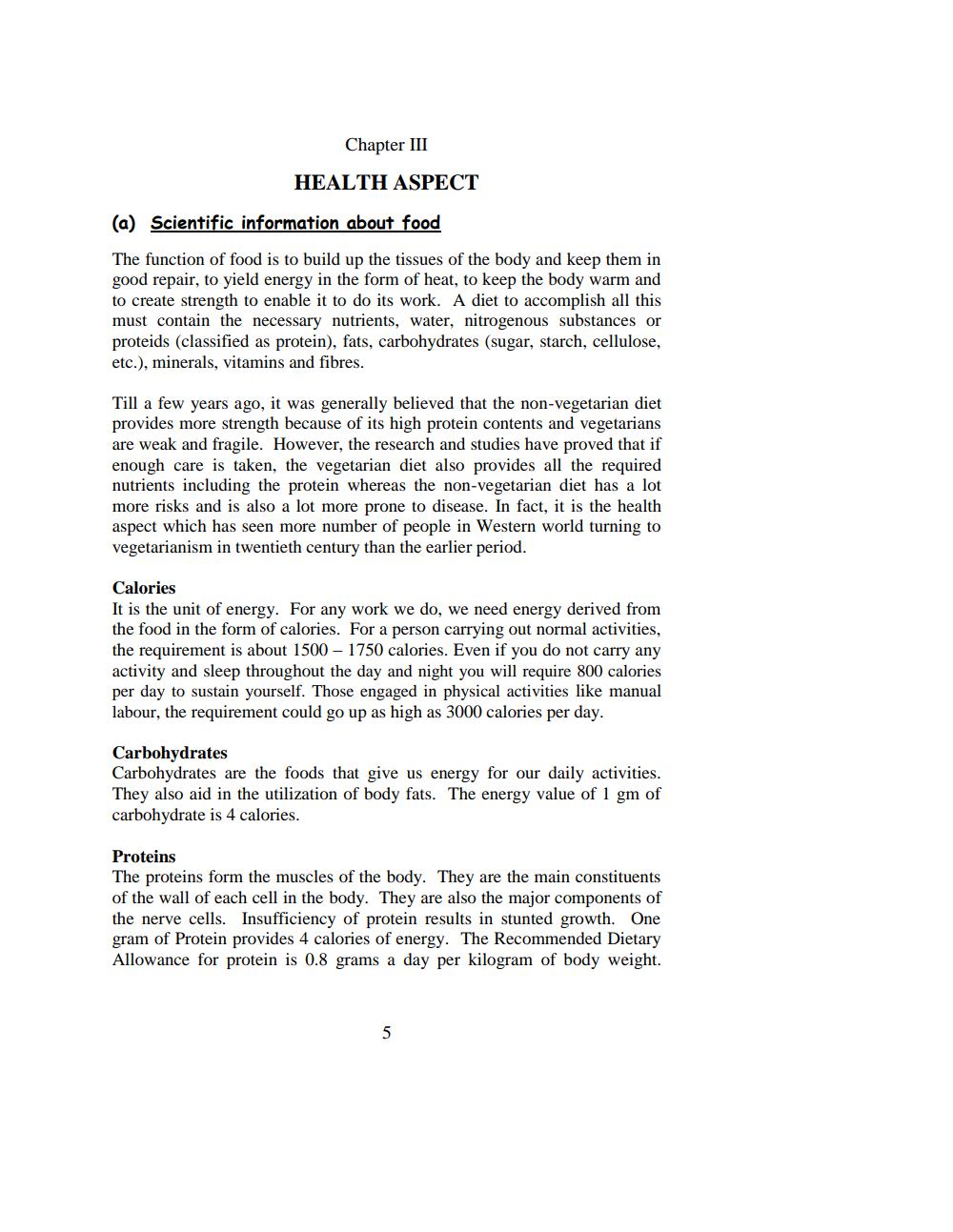Book Title: Vegetarianism Scientific And Spiritual Basis Author(s): Jashwant B Mehta Publisher: Jashwant B Mehta View full book textPage 6
________________ Chapter III HEALTH ASPECT (a) Scientific information about food The function of food is to build up the tissues of the body and keep them in good repair, to yield energy in the form of heat, to keep the body warm and to create strength to enable it to do its work. A diet to accomplish all this must contain the necessary nutrients, water, nitrogenous substances or proteids (classified as protein), fats, carbohydrates (sugar, starch, cellulose, etc.), minerals, vitamins and fibres. Till a few years ago, it was generally believed that the non-vegetarian diet provides more strength because of its high protein contents and vegetarians are weak and fragile. However, the research and studies have proved that if enough care is taken, the vegetarian diet also provides all the required nutrients including the protein whereas the non-vegetarian diet has a lot more risks and is also a lot more prone to disease. In fact, it is the health aspect which has seen more number of people in Western world turning to vegetarianism in twentieth century than the earlier period. Calories It is the unit of energy. For any work we do, we need energy derived from the food in the form of calories. For a person carrying out normal activities, the requirement is about 1500 - 1750 calories. Even if you do not carry any activity and sleep throughout the day and night you will require 800 calories per day to sustain yourself. Those engaged in physical activities like manual labour, the requirement could go up as high as 3000 calories per day. Carbohydrates Carbohydrates are the foods that give us energy for our daily activities. They also aid in the utilization of body fats. The energy value of 1 gm of carbohydrate is 4 calories. Proteins The proteins form the muscles of the body. They are the main constituents of the wall of each cell in the body. They are also the major components of the nerve cells. Insufficiency of protein results in stunted growth. One gram of Protein provides 4 calories of energy. The Recommended Dietary Allowance for protein is 0.8 grams a day per kilogram of body weight.Page Navigation
1 ... 4 5 6 7 8 9 10 11 12 13 14 15 16 17 18 19 20 21 22 23 24 25 26 27 28 29 30 31 32 33 34 35 36 37 38 39 40 41 42 43 44 45 46
